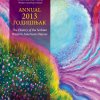Џон Фротингам и Јелена Лозанић
Џон Фротингам
Џон Фротингам (John Frothingham, Бруклин, 1879 — 1935) био је амерички правник, индустријалац, савременик и учесник Великог рата и велики љубитељ музике преко које дознао за судбини словенских народа у рату, коме је помогао прикупљањем деце – ратне сирочади и оснивањам четири Американска васпитна дома за ратну сирочад и напуштену децу. Носилац је Карађорђеве звезде са мачевима и Краљевског ордена Белог орла.Рођен је у Бруклину, у богатој и угледној породици из које потиче и један од највећих америчких сликара Џејмс Фротингам. Завршио је француски језик, свирао клавир и бавио се компоновањем. После дипломирања, музика га је одвоела у Беч, Минхен и Праг са циљем да усаврши технику свирања.
Са Србима, чији ће велики добротвор постати у Великом рату, дошао је у контакт преко исељеничких друштава која су свирала балканску етно музику у САД. Као заљубљеника балканске музике, несрећа Србије у Великом рату, у лето 1914. године погодила га је толико да је у више наврата донирао медицински материјал и новац за ратом захваћену земљу.










